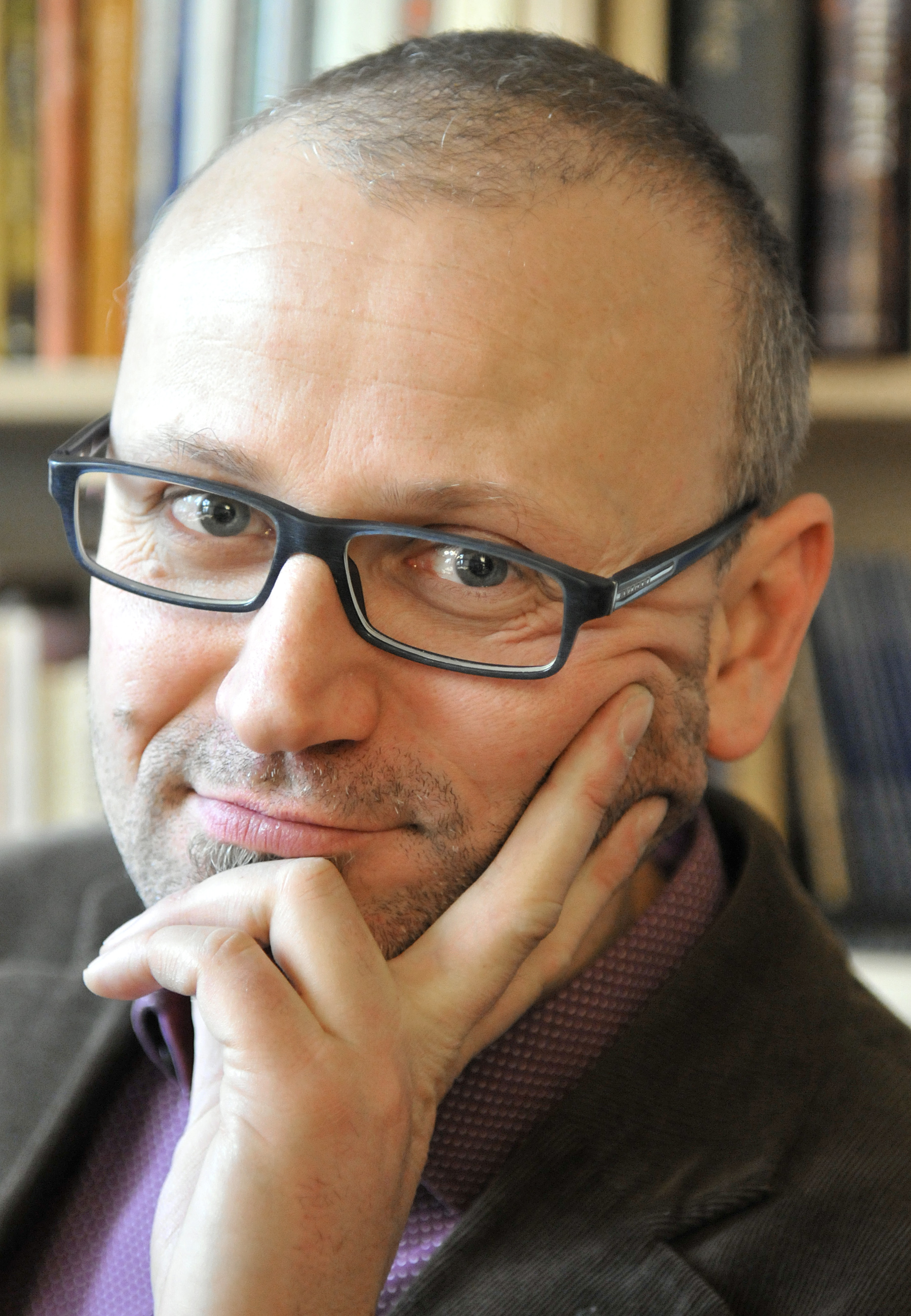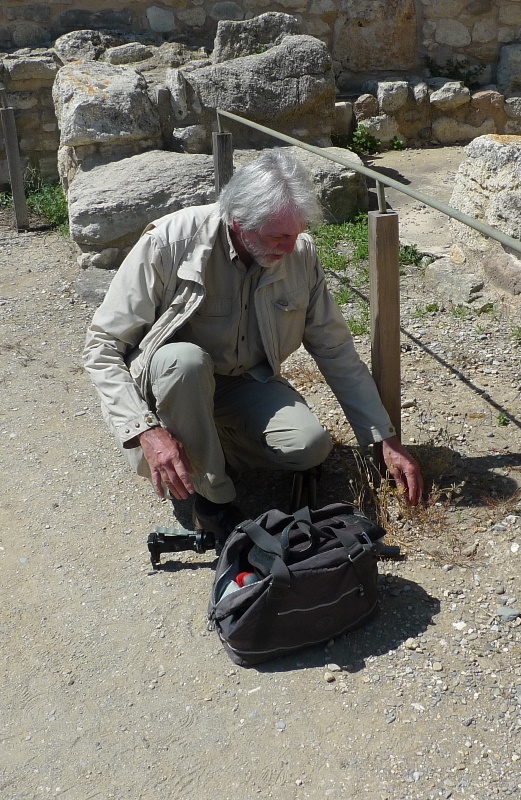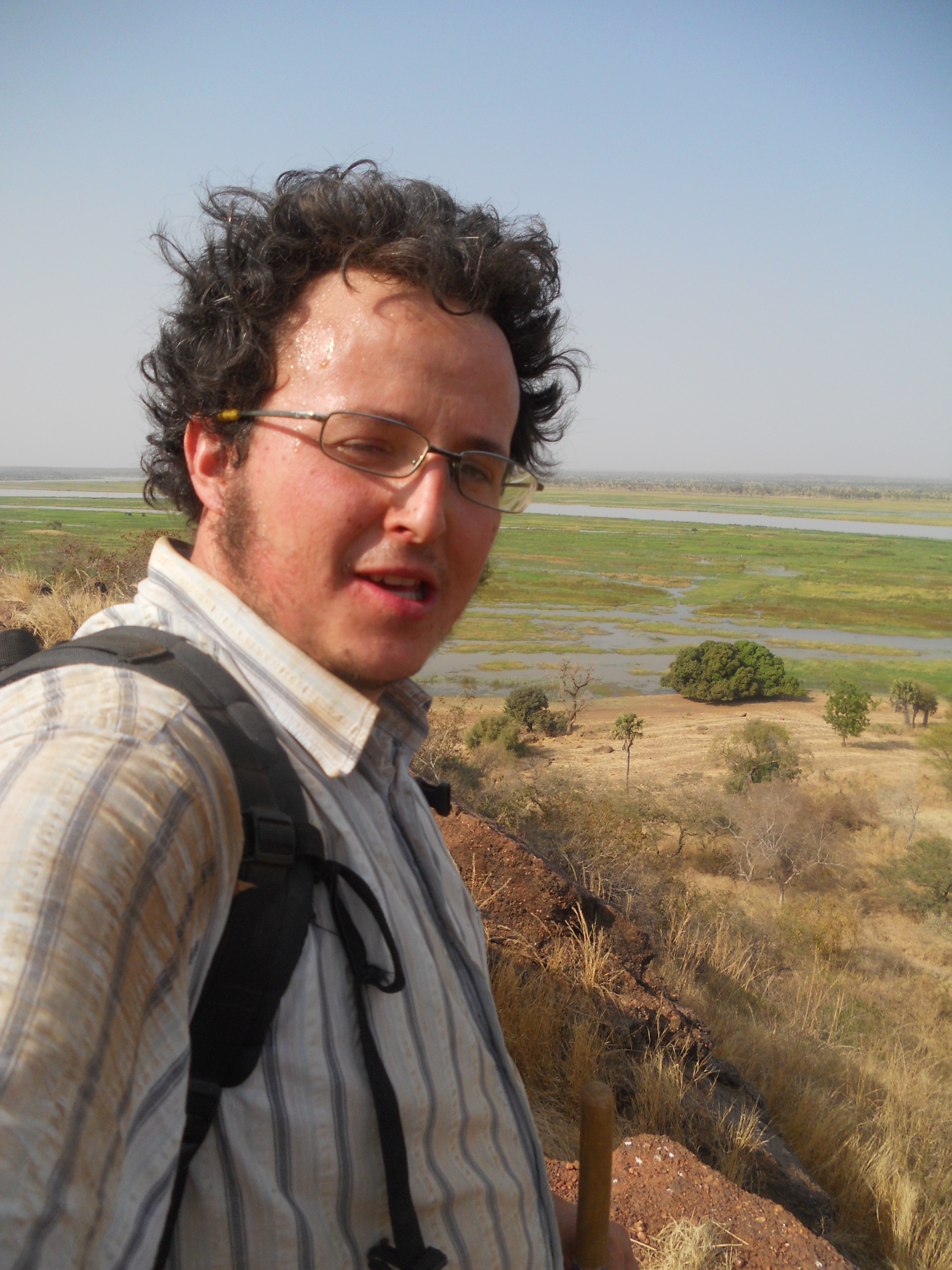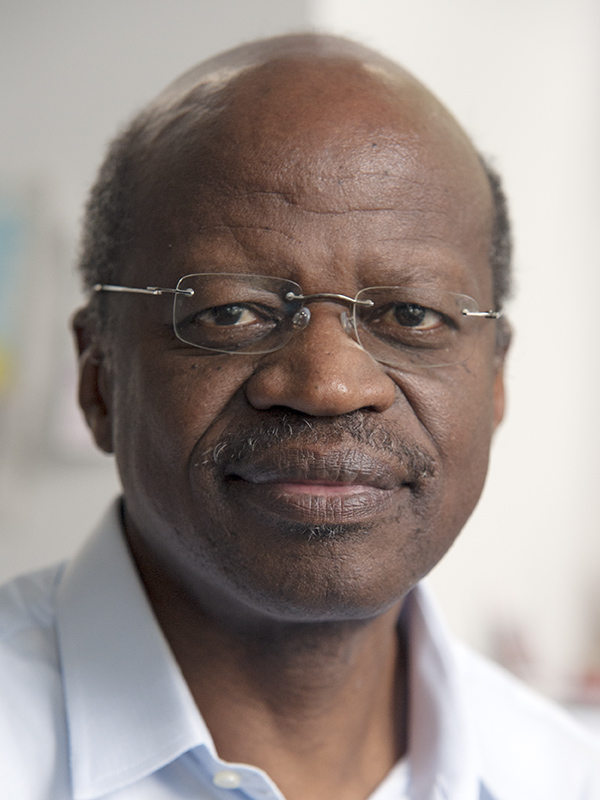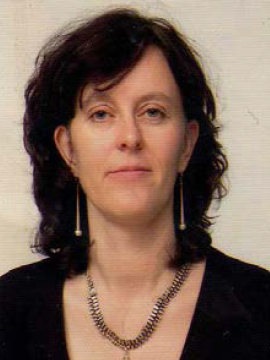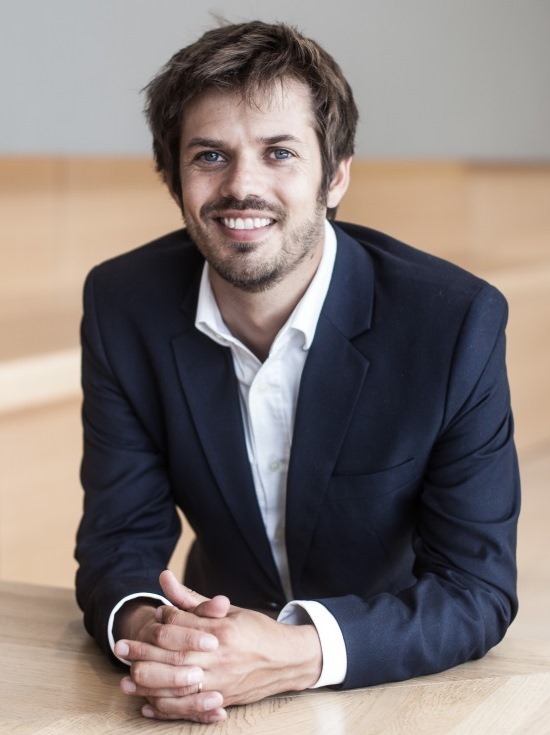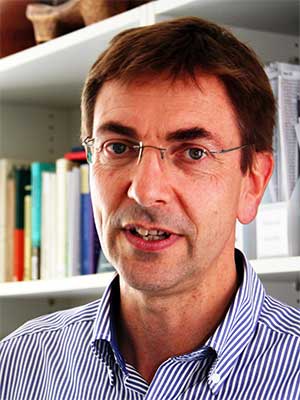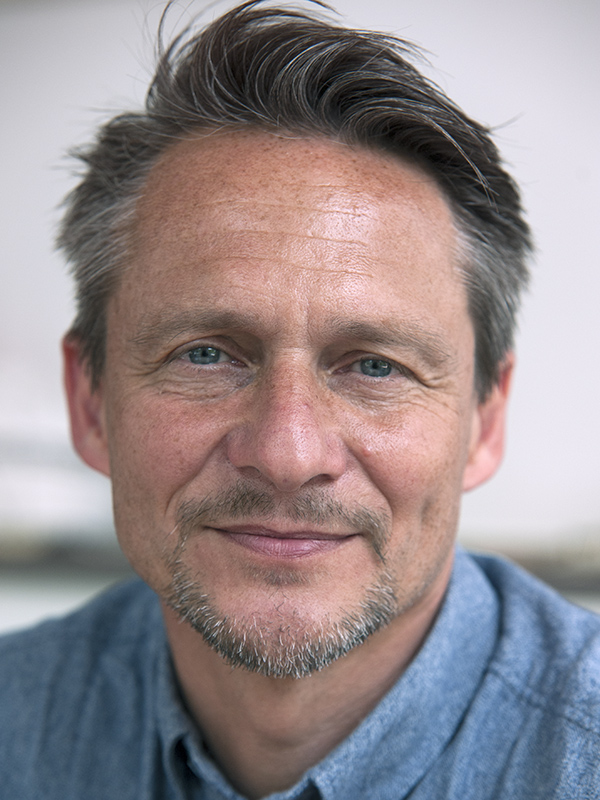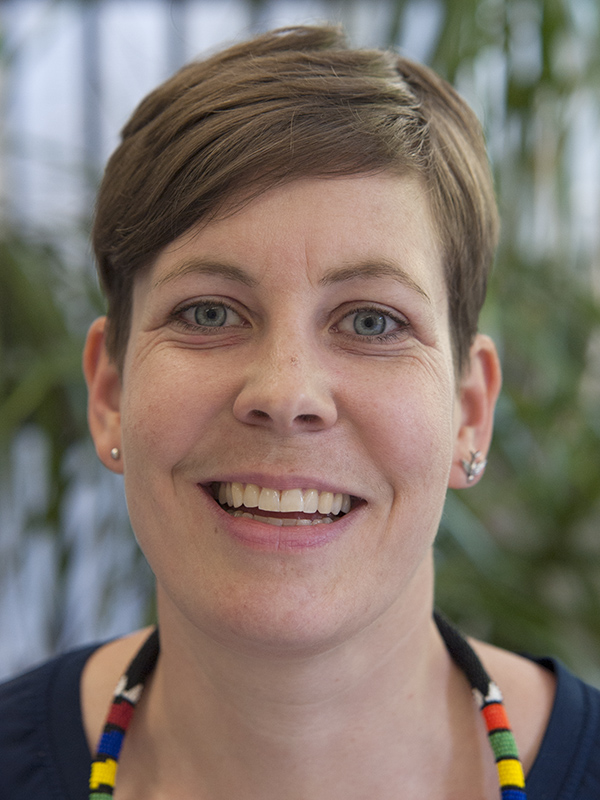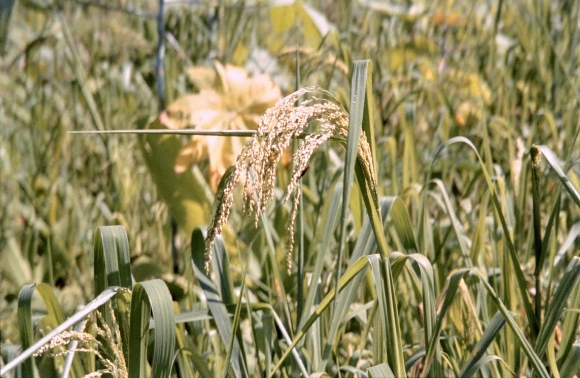 Foto: Roland HardenbergProjektleitung: Peter Berger & Roland Hardenberg
Foto: Roland HardenbergProjektleitung: Peter Berger & Roland Hardenberg
Die Ursprungsidee des Netzwerks ist es, Wissenschaftlerinnen und Wissenschaftler, die an der Erforschung von Hirse in ihren jeweiligen soziokulturellen Kontexten interessiert sind, über Regionen und Zeiten hinweg zu verbinden. Unter welchen Bedingungen wird Hirse zu einer zentralen Nahrungsressource? Welche Faktoren tragen umgekehrt dazu bei, dass Hirseanbau zunehmend vernachlässigt wird und Hirse als Grundnahrungsmittel aus der Küche verschwindet? Wie ist die Hirse in verschiedenen Gesellschaften kulturell eingebettet und welchen Zusammenhang gibt es zwischen Hirsekulturen und formen sozialer Organisation? – Dies sind nur einige der zentralen Fragen, die ein Konsortium von Forscherinnen und Forschern beschäftigt, das sich 2018 zu einem Netzwerk zusammengeschlossen hat. Das Netzwerk umfasst Archäologen, (Ethno-)Archäobotanik, Botaniker und Sozial- und Kulturanthropologen der Universitäten Groningen und Frankfurt am Main und dient als Plattform für die Koordination von Forschungsaktivitäten. Die Wissenschaftlerinnen und Wissenschaftler untersuchen vergangene wie gegenwärtige Gesellschaften in Afrika und Indien und behandeln ein breites Feld an Themen, wie zum Beispiel die Konkurrenz zwischen Hirsesorten und anderen stärkehaltigen Produkten, die Gründe für die weltweite Marginalisierung von Hirse sowie die Zusammenhänge zwischen den materiellen Affordanzen und konkreten Praktiken der Produktion, Verarbeitung, Distribution und Konsumption von Hirse in Afrika und Indien. Die Definition von Hirse wird in diesem Netzwerk bewusst offengehalten, um die regionalen Varianten von tatsächlich genutzten Gräsern zu erfassen. Die Mitglieder des Netzwerkes kommen zu regelmäßigen Treffen zusammen, veranstalten gemeinsame Workshops und Konferenzen und bündeln ihre Expertise für interdisziplinäre Forschungsaktivitäten. Das Netzwerk sieht sich als ein Verbund, der eine enge Verbindung von Wissenschaft und gesellschaftlichen Institutionen und Partnern gewährleistet, um im Sinne einer „third mission“ einen Wissenstransfer in die Gesellschaft, national wie international, zu erreichen.
Für weitere Informationen wenden Sie sich bitte an:
| Peter Berger: |
p.berger[at]rug.nl |
| Roland Hardenberg: |
hardenberg[at]em.uni-frankfurt.de |
Mitglieder
Projektpartner
Veranstaltungen
Aktuelles
Mitglieder
|
|
|
Foto: Elmer Spaargaren
|
Peter Berger is Associate Professor of Indian Religions and the Anthropology of Religion at the Faculty of Theology and Religious Studies, University of Groningen. His interest in millets has developed through his long-term ethnographic research in highland Central India. The plateau of the Eastern Ghats (belonging to the Koraput district of Odisha) is home of a number of indigenous communities that cultivate both wet rice and millets. The complementarity of these two main staple cereals is deeply rooted in local life-worlds, embedded in the social order and manifest in ritual practices. Among the publications that discuss these aspects are his monograph “Feeding, Sharing and Devouring: Ritual and Society in Highland Odisha, India” (de Gruyter 2015). Other relevant publications include: (2003) “Erdmenschen und Flussbräute: Natur, Umwelt und Gesellschaft in Orissa, Indien”, Baessler Archiv 51: 7-24 and (in press, with R. Hardenberg) “Cereal Belongings – a cultural perspective on cereals as resource”, Paideuma: Journal of Cultural Anthropology, 64. His ongoing interests include the comparative study of agriculture and religion in Central India as well as the investigation of the dynamics of both resilience and change in these fields.
|
| |
|
|
Foto: Privat
|
René Cappers is professor of Archaeobotany at the Rijksuniversiteit Groningen and the Leiden University. He studied biology at Groningen University and specialized in plant ecology and archaeobotany. His PhD thesis deals with methodological aspects of archaeobotanical research. Postdoctoral projects concerned the study of the modeling of the transition to early farming in the Near East and the Roman trade with Africa south of the Sahara, Arabia and India. Currently, his interest if focused on the reconstruction of the former food economy with special emphasis on the modeling of crop selection. Recent research deals with the standardization of concepts related to (1) the morphology of plant units that are produced in agriculture and to (2) the processes that are involved in crop processing and food preparation. His study was initially focused on the founder crops of southwest Asia (wheat and barley in particular). Recently, he also started to study crops that have been domesticated in India and Africa south of the Sahara. The millet project perfectly fits into this new challenging enterprise. Cappers, R.T.J. (2018): Digital atlas of traditional food made from cereals and milk (book and website of University Library Groningen). Groningen Archaeological Studies no. 33. Groningen: Barkhuis & Groningen University Library. Cappers, R.T.J., R. Neef, R.M. Bekker, F. Fantone & Y. Okur (2016): Digital atlas of traditional agricultural practices and food processing (book and website of University Library Groningen). Groningen Archaeological Studies no. 30. Groningen: Barkhuis & Groningen University Library.
|
| |
|
|
Foto: Nicolas Nikis
|
Louis Champion is a tropical archaeobotanist and archaeologist. He has been working in West Africa (Benin, Mali, Ghana and Senegal), East Africa (Uganda, Madagascar, Zanzibar, and Comoros), Central Africa (DR Congo and PR Congo) and in Asia (Myanmar, Bangladesh and Thailand). He has recently completed a PhD, at the institute of archaeology at University College of London (UCL), on archaeobotanical remains along the Niger River Basin, with a strong focus on ethnobotanical and ethnoarchaeological understanding. He has also been working on millets more widely in Africa and beyond. His research examines the evolution of the agricultural and food economies that supported the communities that gave rise to complex societies in West Africa, as well as the agricultural systems that sustained the succeeding polities around the Niger River Valley. One of the major goals of his researches is to reconstruct the evolution of food and beer systems, including both production and consumption. This aim goes beyond simply documenting the arrival of new practices or new crop taxa. It also addresses the consumption practices that these crops gave rise to, and how they became embedded in the social, economic, political and environmental history of past African societies. Currently he is a researcher (Post-Doc) on the Nok Project at the Department of Pre- and Proto-historical Archaeology, Institute of Archaeological Sciences at Goethe University. He is also associate researchers at the Royal Museum of Central Africa, Tervuren in Belgium and external collaborator in Anthropology and ethno-archeology at the Department of Genetics & Evolution, university of Biology, Geneva Switzerland.
|
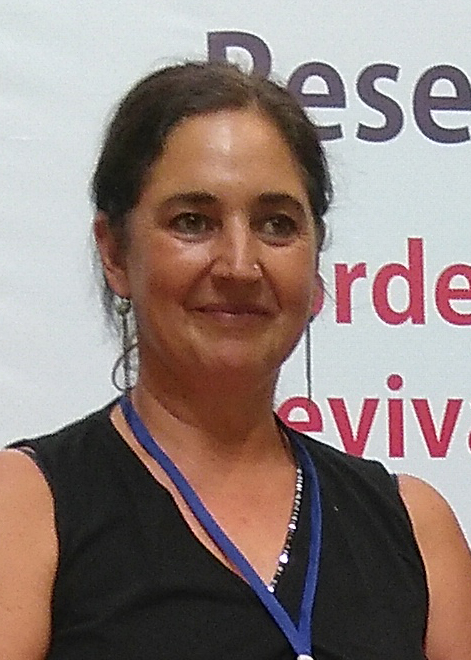 Foto: Privat Foto: Privat |
Jeanine Dagyeli is Assistant Professor of Turkic Studies at the University of Vienna and researcher at the Institute of Iranian Studies, Austrian Academy of Sciences. She is also associated with the Department of Kazakh Language and Turkic Studies at Nazarbayev University, Kazakhstan. She studied Central Asian Studies at Humboldt University Berlin where she received a doctor's degree for her thesis on the religious legitimisation of work in presocialist Central Asia ("Gott liebt das Handwerk." Moral, Identität und religiöse Legitimierung in der mittelasiatischen Handwerks-risala, 2011). Her main research interests include the cultural and social history and anthropology of Central Asia, more specifically labour, human-environment relations, diseases and death as well as the nexus of so-called small literary genres and ritual. She is PI in the research project "Anthropogenic Environments in the Future Tense: Living and Narrating Change in Kazakhstan's Mining Towns" (Project reference 021220CRP1622) based at Nazarbayev University, and PI in one of the SFB 1070 C04 projects that deals with the religious and economic dimensions of wheat cultivation in Kazakhstan. She came to the Millet Network through her interest in agricultural work in Central Asia. Today, millet plays little role in the cereal mix of the region but historical and archeological evidence point to the otherwise for the past. Through collaboration with the Millet Network and colleagues from other disciplines she wants to understand the cereal dynamics in Central Asia and their potential causes and effects.
|
|
Foto: Frobenius Institut
|
Mamadou Diawara is professor at the Department of Social and Cultural Anthropology of the Goethe University, Frankfurt am Main, Germany, since 2004. He is Director of the Centre for Interdisciplinary African Studies (ZIAF). He also is Deputy Director of the Frobenius-Institute for Research in Anthropology. Before 2004 he taught at Yale University as well as the University of Georgia, USA (2002-2003). He is principal investigator (PI) for the Cluster of Excellence research project The Formation of Normative Orders at Frankfurt University. He is PI at for the Africa’s Asian Options funded by the BMBF at the Frankfurt University (AFRASO) and the founding director of Point Sud, The Centre for research on local knowledge in Bamako, Mali. He is council member of the International African Institute in London. He had several fellowships at renowned institutions such as the Wissenschaftskolleg zu Berlin, the Stellenbosch Institute for Advanced Study (STIAS), the Institute for Advanced Study in Nantes. He was John G. Diefenbaker fellow at the Université Laval, Canada. Diawara’s research focuses on oral tradition and history, as well as the media, the relations between Asia and Africa, migration and development issues in sub-Saharan Africa.
|
| |
|
|
Foto: Private
|
Susanne Epple is a researcher at the Frobenius Institute in Frankfurt/Main currently engaged in a DFG project on legal pluralism in Ethiopia. Since 1994 she has done extensive fieldwork in Bashada, southern Ethiopia, on issues related to gender and age, social discourse and identity, and has gained MA and PhD degrees in Social Anthropology from Mainz University. From 2007 to 2015 she taught Social Anthropology at Addis Abba University, and supervised and examined numerous MA and PhD theses based on research in different parts of the country. Between 2012 and 2015 she also worked on marginalized groups for a project located at Hamburg University. Her publications include numerous articles, a special issue and three books on Ethiopia, including two recently edited volumes: Creating and Crossing Boundaries in Ethiopia: Dynamics of Social Categorization and Differentiation (2014) and The State of Status Groups in Ethiopia: Minorities between Marginalization and Integration (2018). In the planned project, Epple will explore changes and continuities in the social and ritual meaning of sorghum among selected societies of southern Ethiopia, with a special focus on related concepts of purity and impurity.
|
|
|
|
|
Foto: Mirko Krenzel for VolkswagenStiftung
|
Nikolas Gestrich is a Junior Research Group leader at the Frobenius Institute. He is an archaeologist specialising in the emergence and nature of complex societies in West Africa. His current research interests lie in the relationship of Archaeology and other historical disciplines in the African past, and in the history of cities and states in the Ségou region of Mali. Within the “contested millets” project, Nikolas’ emphasis is on material cultural expression and settlement patterns which accompany past crop regimes.
|
| |
|
| Foto: Ronja Metzger |
Hans P. Hahn is Professor for Anthropology with special focus on Africa at Goethe University of Frankfurt a. M. His research interests are oriented towards material culture, consumption and the impact of globalization on non-western societies. He edited a book on “Consumption in Africa” (Lit, 2008), focussing on household economies and agriculture in the West African Savanna. He participated in a research programme on globalization in Africa (2000-2007), investigating the many roles of “global goods” in West Africa. Until spring 2019, he was speaker of the research training group “Value and Equivalency” at Goethe-University. In this context, he participated in the organization of several exhibitions on human action and materiality. Other ongoing research initiatives are linked with polysemic approaches to material culture studies.
Hans P. Hahn’s recent publications include an edited volume on the “Obstinacy of Things” (Neofelis 2015) and on “Marcel Mauss’ writings on money “(Suhrkamp 2015).
|
| |
|
| |
|
|
Foto: Frobenius Institut
|
Roland Hardenberg is professor at the Department of Social and Cultural Anthropology of the Goethe University, Frankfurt am Main, Germany. He is also Director of the Frobenius-Institute for Research in Cultural Anthropology which hosts one of the most important collections of rock art worldwide. His previous research focused on Hindu rituals (The Renewal of Jagannatha’s Body, 2011), society and religion of an Indian tribal community (Children of the Earth Goddess, 2018) and death commemoration practices in Kyrgyzstan (ed. Approaching Ritual Economy, 2017). As a co-founder of the “Frankfurt-Groningen Millet network” he is currently engaged in research on the cultural meaning of cereals. During previous research among the Dongria Kond of Odisha he realized the impact of subsidized rice on millet cultivation. When rice was accepted as a staple food, it began to substitute millet on festive occasions and the number of rice fields increased. Rice became an alternative to millet in a variety of contexts: as offering to gods and object of worship, as gift to friends and relatives, as food for daily and ceremonial contexts. In his research, he raises the question what wider impacts the choice for rice has.
His publications on millet and rice include (2018) “Grains as socio-cosmic resources in Odisha/India and Beyond: Rice and Millet in Competition.” Paideuma: Journal of Cultural Anthropology 64: 265-283 and (2016) “Beyond Economy and Religion. Resources and Socio-cosmic Fields in Odisha, India.” Religion and Society: Advances in Research 7: 83-96.
|
|
|
|
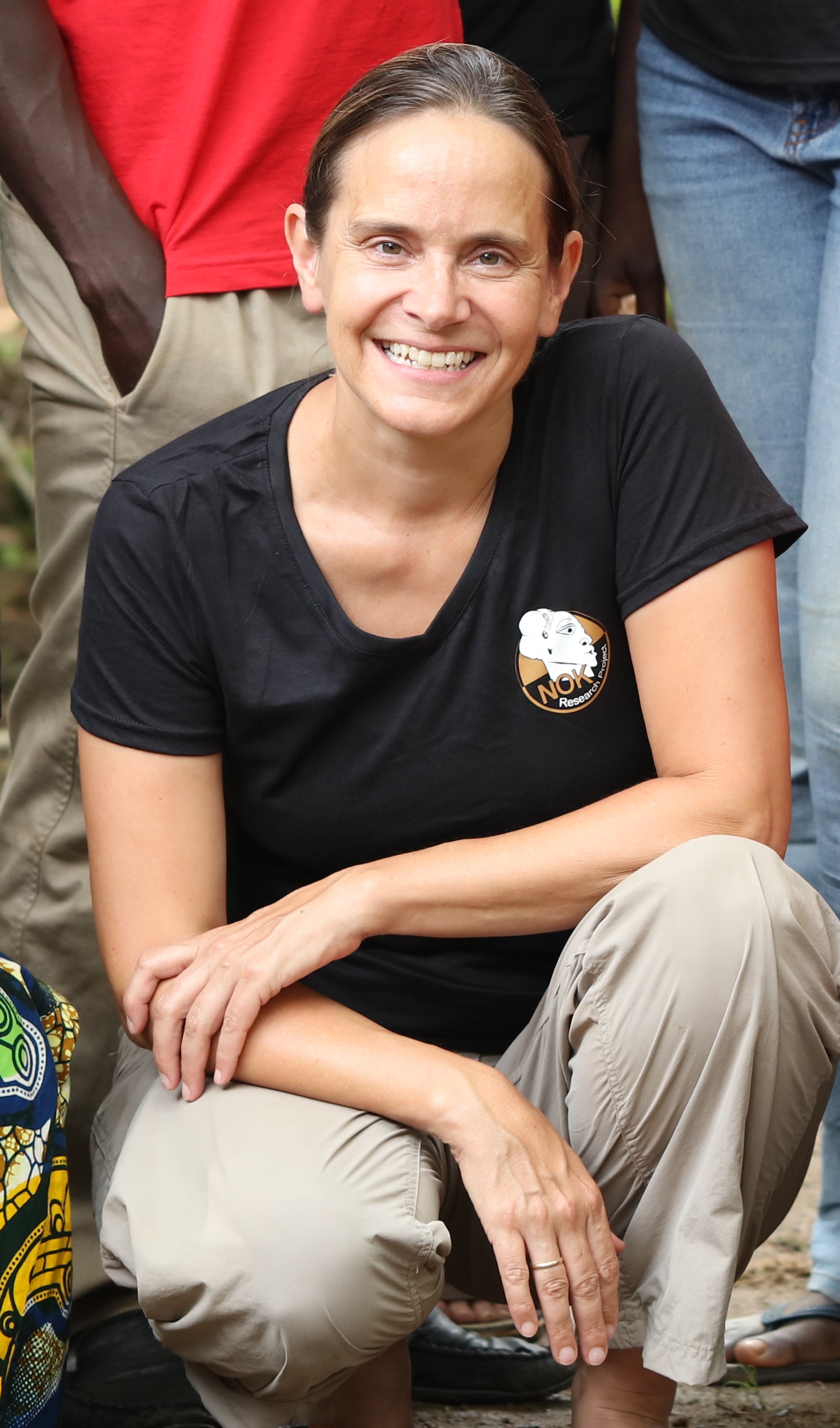
Foto: P. Breunig
|
Alexa Höhn is an archaeobotanist and botanist specialized in past human-environment interrelationships with a focus on land-use and related landscape changes in West and Central Africa. Currently Alexa Höhn is leading the research project on “Cultivated Landscapes” within the DFG-funded Special Research Project “Entangled Africa” located at the Department of Pre- and Protohistory, Institute of Archaeological Sciences of Goethe University, Frankfurt am Main. Pearl millet (Cenchrus americanus, syn. Pennisetum americanum) is the most important African cereal domesticated in West Africa and plays an important role in the development of early farming systems in (semi-)arid regions and thus the development of cultivated landscapes there. Intriguingly, pearl millet seems to have been of such importance to some groups that, by c. 2000 years ago, it became cultivated in regions of Central Africa, where humid environmental conditions make its use as a staple crop difficult. Based on archaeobotanical evidence, she is interested in what role pearl millet and its products may have played in these environments and how long this tradition continued.
|
|
|
|
|
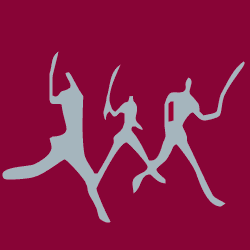 Foto: Frobenius-Institut Foto: Frobenius-Institut
|
Sonja Magnavita has been Professor of Prehistoric and Early Historic Archaeology of Africa at the Institute of Archaeological Sciences at Goethe University since 2020. She studied in Frankfurt and received her doctorate in 2006; the subject of her thesis was the pre- and early historical settlement of a region in north-eastern Burkina Faso. The Sahelian region, nowadays used by mobile pastoralists, was inhabited by permanent local millet farmers for over one and a half millennia in the Iron Age - pearl millet was an important subsistence economic mainstay of society at the time. After completing her doctorate, she researched archaeological sites of a similar period in Niger, first in the Agadez region and then in the south-west of the republic, around the river valleys of the Niger and its western tributaries. The focus here was on economic archaeology and archaeometry. For some years now, she has been researching mainly in Senegal, with a focus on landscape archaeology. Today, settled millet and peanut farmers share the area with more mobile pastoralists (Peulh), but little is known about society in prehistoric and early historic times. Probably from the late Iron Age and in the Middle Ages, monumental burial mounds were built in the midst of an agricultural environment. But what the economy was actually based on, in those times as well as in the millennia before, we still know little about. Again, millet can be assumed to have been a mainstay of the nutrition at least since the Iron Age, but whether and since when this was actually the case remains to be found out. Sonja Magnavita led the DFG project "Settlement and Economic History in the Iron Age and Early Middle Ages in the Sahel of West Africa" (2010-2015) and since 2019 the project "The Tumuli Area in Central-Western Senegal: Geophysical and Archaeological Investigations of a Hidden Cultural Landscape", also funded by the DFG. She is also a programme committee member and sub-project leader in the DFG priority programme "Entangled Africa" with an archaeometric project on ceramics (short title "Tracing Connections / Verbindungen auf der Spur"). In 2018, Sonja Magnavita habilitated at the Ruhr-Universität Bochum (title of the habilitation thesis: "Wirtschaftsarchäologische Studien zur Eisenzeit Westafrikas").
|
|
|
|
|
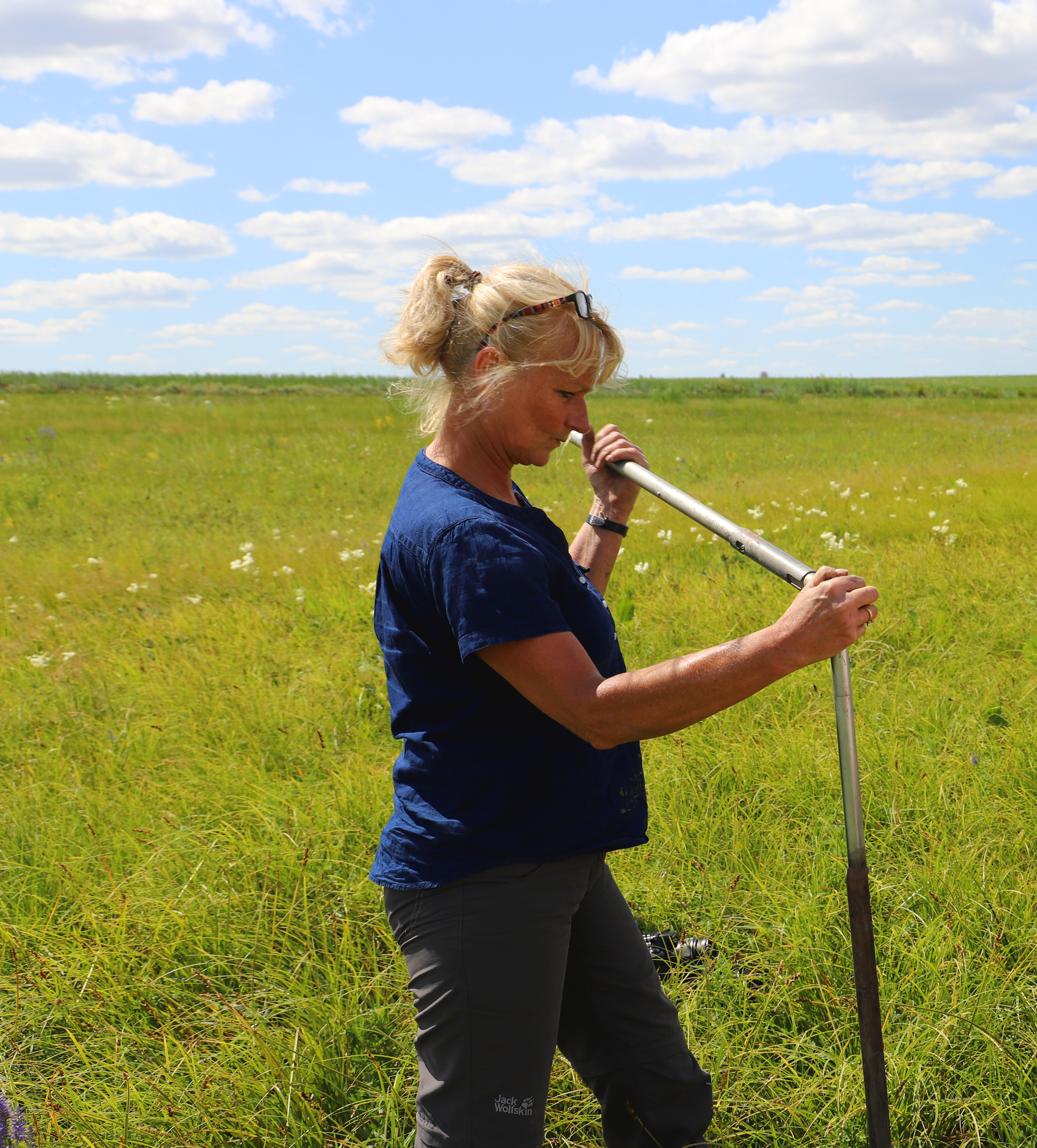 Foto: B. Voss Foto: B. Voss
|
Astrid Stobbe is an associate professor at the Institute of Archaeological Sciences and the head of the Archaeobotanical Laboratory of Europe and West Asia at Goethe University. She is an archaeobotanist conducting research in Europe and Western Siberia since the 1990s. Her scientific focus comprises Holocene vegetation history and man-environment relationships in the last 10,000 years, including land use, land-use systems, climate and vegetation dynamics. Her interest in millet is to investigate the rapid and widespread occurrence of this crop in Europe against the background of social and climate change in the middle of the second millennium BC. The current focus lies on the Late Bronze Age in Romania (Filipović et al. 2020; Dal Corso et al. in press; Gumnior et al. 2020). In addition, she leads a research project dealing with the importance of agriculture in the Eurasian Steppe, where millet is prominent at very different times and in very different quantities.
|
|
Foto: Frobenius Institut
|
Sophia Thubauville is researcher and head of library at the Frobenius Institute, Frankfurt am Main. She obtained her PhD on questions of gender and agency among the Maale of southern Ethiopia from the University of Mainz. She has been undertaking extensive field research in southern Ethiopia since 2002 and codirected the South Omo Research Center in Jinka in 2009/2010. Recent publications include the edited volumes ‘Cultural Research in Northeastern Africa. German Histories and Stories’ (2015), ‘Seeking out wise old men. Six decades of Ethiopian Studies at the Frobenius Institute revisited’ (2017), and ‘Anthropology as Homage. Festschrift for Ivo Strecker’ (2018). Her current research interests focus on Indian educators in Ethiopia, making archival material accessible in Ethiopian Studies, and informal savings and insurance associations. Her research within the millet network will focus on the ritual embeddedness of sorghum and the social hierarchy of crops in southern Ethiopia.
|
|
|
|
Projektpartner
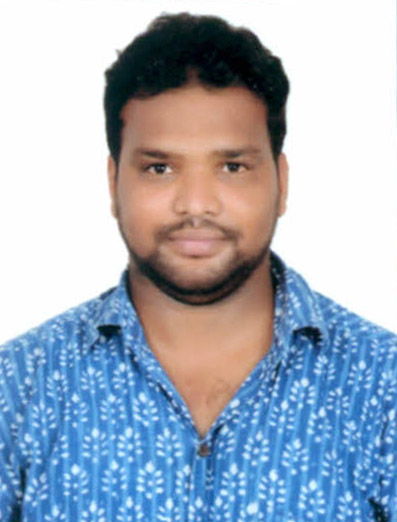 Foto: Privat
Foto: Privat
Dinesh Balam is a professional with 12 years of experience and worked in different capacities in projects in Asia, Europe and Middle East. In the last 7 years he has exclusively worked on rainfedagriculture in 5 states. His core areas of work are Agrobiodiversity and Agroecology, Rainfed Agriculture Policy Advocacy, Multi-stakeholder programme design and management. He has worked
extensively with various institutions such as Niti Aayog, MoA-CRIDA, MANAGE-MoA, FAO, NRAA-MoA, ICAR institutions, UNDP, RRA Network and Indian School of Business on developing the appropriate project delivery design for rainfed agriculture.He has played a key role in development of Odisha Millets Mission, Odisha Organic Farming Policy, Paramparaghat Krishi Vikas Yojana for Odisha and so forth. He is currently advocating for community led agrobiodiversity programmes in the country.
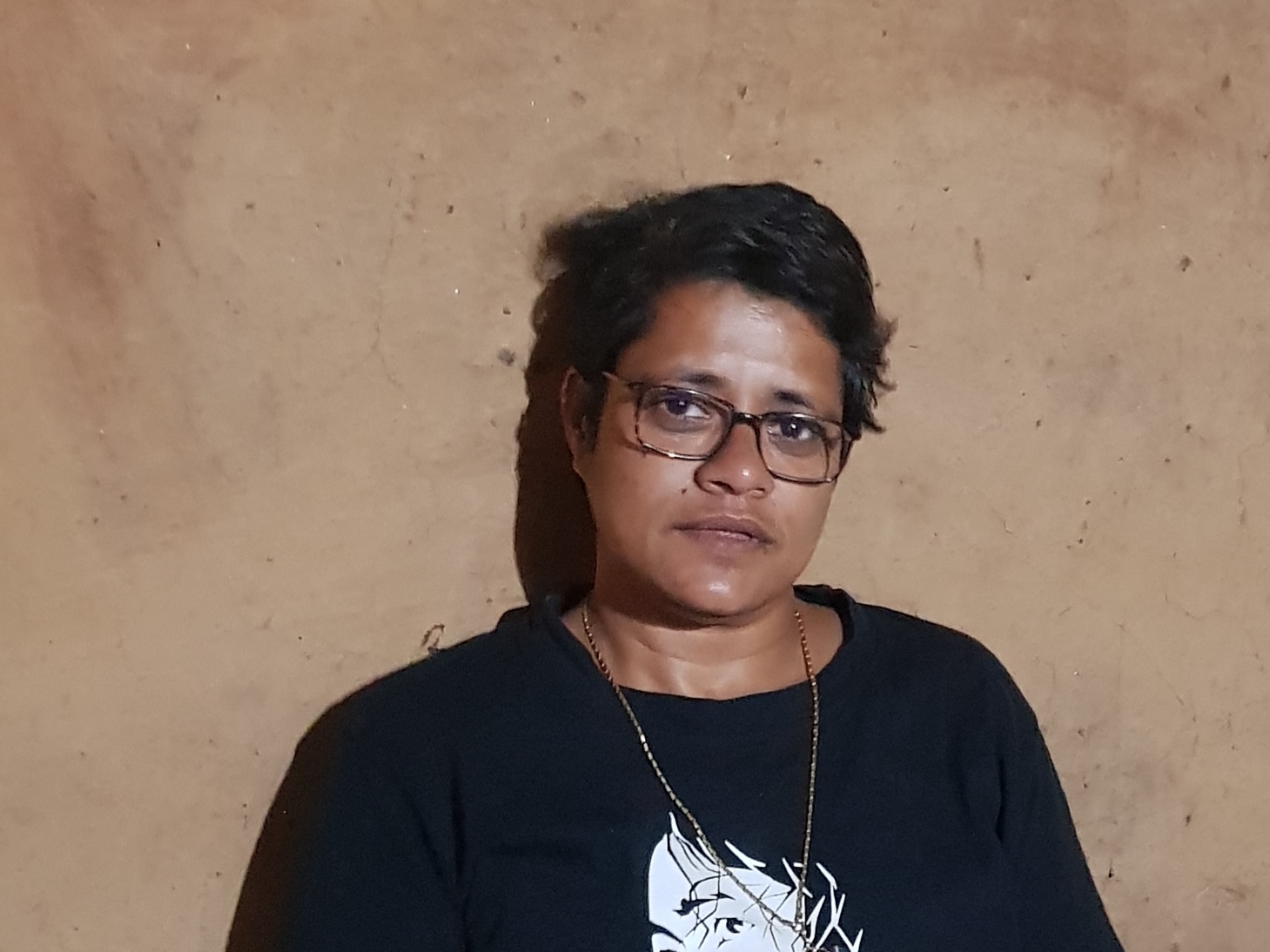 Photo: PrivatSharanya Nayak lives and works with adivasi communities of southern Odisha since 1999. Before that she worked as a sub-editor with New Indian Express but soon she
Photo: PrivatSharanya Nayak lives and works with adivasi communities of southern Odisha since 1999. Before that she worked as a sub-editor with New Indian Express but soon she
realised she did not like a desk job and wanted to spend more time with people in the villages. She joined ActionAid, a British funding agency, and moved to Bolangir district town to work with Dalit and Adivasi migrant workers and then moved to Malkangiri in 2001 to work with Adivasi forest communities. Since then she has worked with Adivasi communities across Rayagada, Malkangiri, Bastar and Koraput on issues ranging from land, forest, language, mining resistance and culture. She quit her job in 2015 and moved to a farm in an Adivasi village 10 kms from Koraput town. She farms there along with three other Adivasi and Dalit families who have formed a nascent farming commune called Rangmatipadar and continues her engagement with Adivasi communities on issues around forest, farming, mining resistance, language, intergenerational learning and culture.
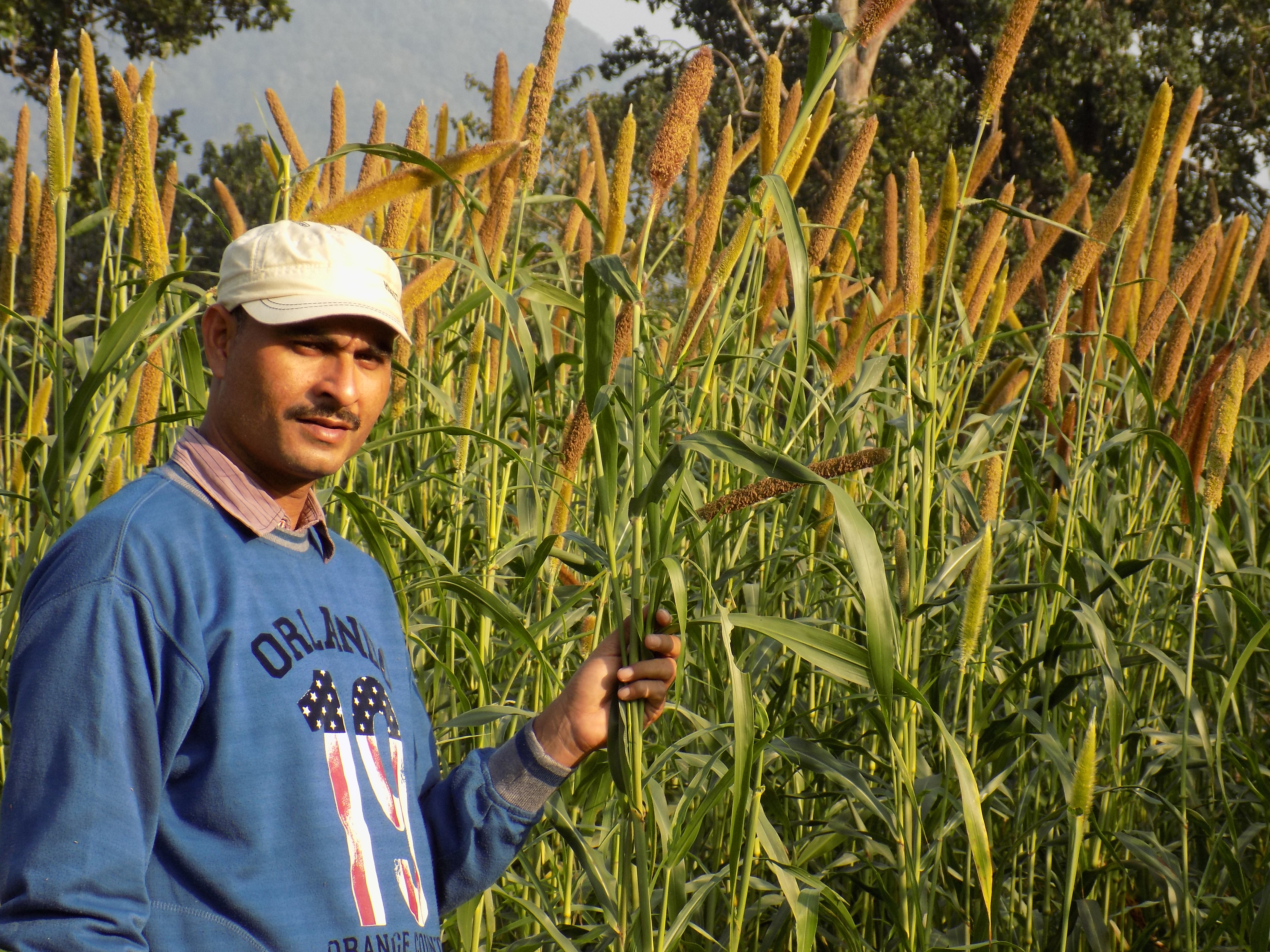 Photo: Privat
Photo: Privat
Aditya Pratap Singh Deo is a development professional and millets conservation enthusiast. He is currently associated with the Watershed Support Services and Activities Network (WASSAN), a national level non-for-profit organization based out of India. His fascination with millets has started more than two decades ago and his early professional work on women and child nutrition cemented it further. He had been relentlessly working in collaboration with local farmers since 2005 for improvement and conservation of indigenous heirloom seeds of millets, pulses, maize, and paddy. He works in collaboration with the Kutia Kondh indigenous communities of Kandhamal and Khalahandi districts of the Indian state of Odisha to study and conserve the indigenous agriculture practices, heirloom seeds, and culture. He often shares heirloom seeds with individual farmers for conservation through cultivation. He was working with Odisha Millets Mission for a period of three year .He is also an active member of Desi Bihan Surakhya Manch, Oidsha and Bharat Beej Swaraj Manch, India, a regional and national level seed savers networks of India.
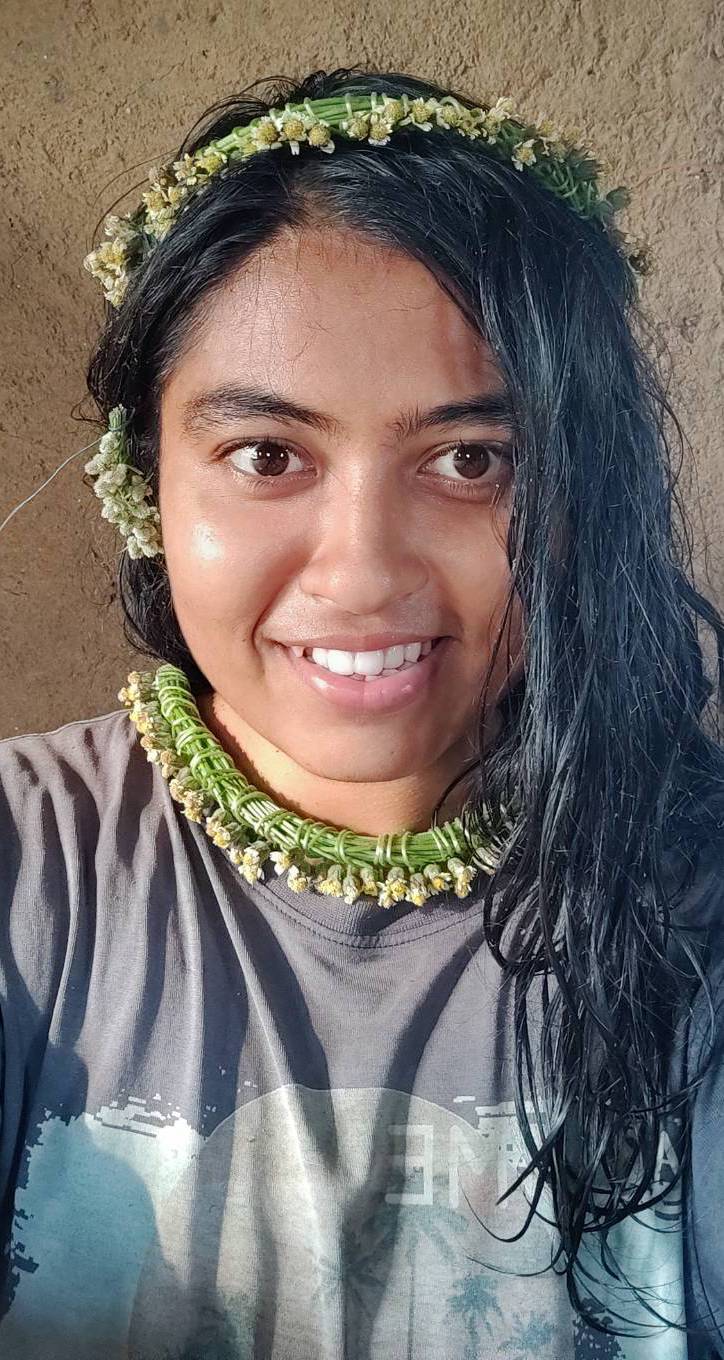
Foto: Pritu Vatsa
Pritu Vatsa is a dreamer, free soul, a learner in the school of life and a believer in co-creation of holistic spaces. She is to be found mostly in and around forests, streams, mountains and villages, currently learning and sharing with the indigenous communities in Odisha. She has also been working in collaboration with Eco-Femme in parallel, trying to reach women and girls. With them she conducts workshops on eco-menstruation, body image, body discomfort, stigmas and taboos related to menstruation.
She alongwith the Kondh community in Odisha started the initiative called the "School of Nature " which is about making education culturally relevant, context specific and ecologically rooted.
The Facebook-page of "School of Nature"
Veranstaltungen
International Workshop Contested Millets in Asia and Africa: Past and Present, March 28th-29th 2019, Groningen
Workshop Contested Millets in Asia and Africa, May 18th-19th 2018, Frankfurt am Main
Aktuelles
NWO funds research on ‘magical superfood’: millets
Millets: ancient crops for the future
University of Groningen, 18 May 2020
 Foto: Roland HardenbergProjektleitung: Peter Berger & Roland Hardenberg
Foto: Roland HardenbergProjektleitung: Peter Berger & Roland Hardenberg Foto: Privat
Foto: Privat Photo: PrivatSharanya Nayak lives and works with adivasi communities of southern Odisha since 1999. Before that she worked as a sub-editor with New Indian Express but soon she
Photo: PrivatSharanya Nayak lives and works with adivasi communities of southern Odisha since 1999. Before that she worked as a sub-editor with New Indian Express but soon she  Photo: Privat
Photo: Privat



